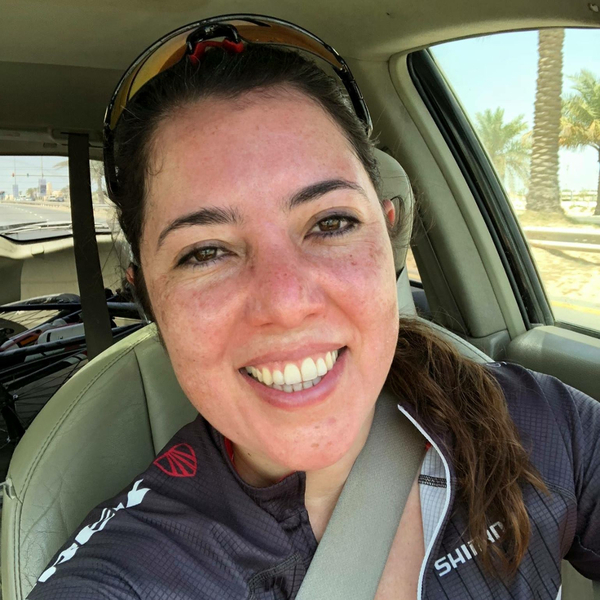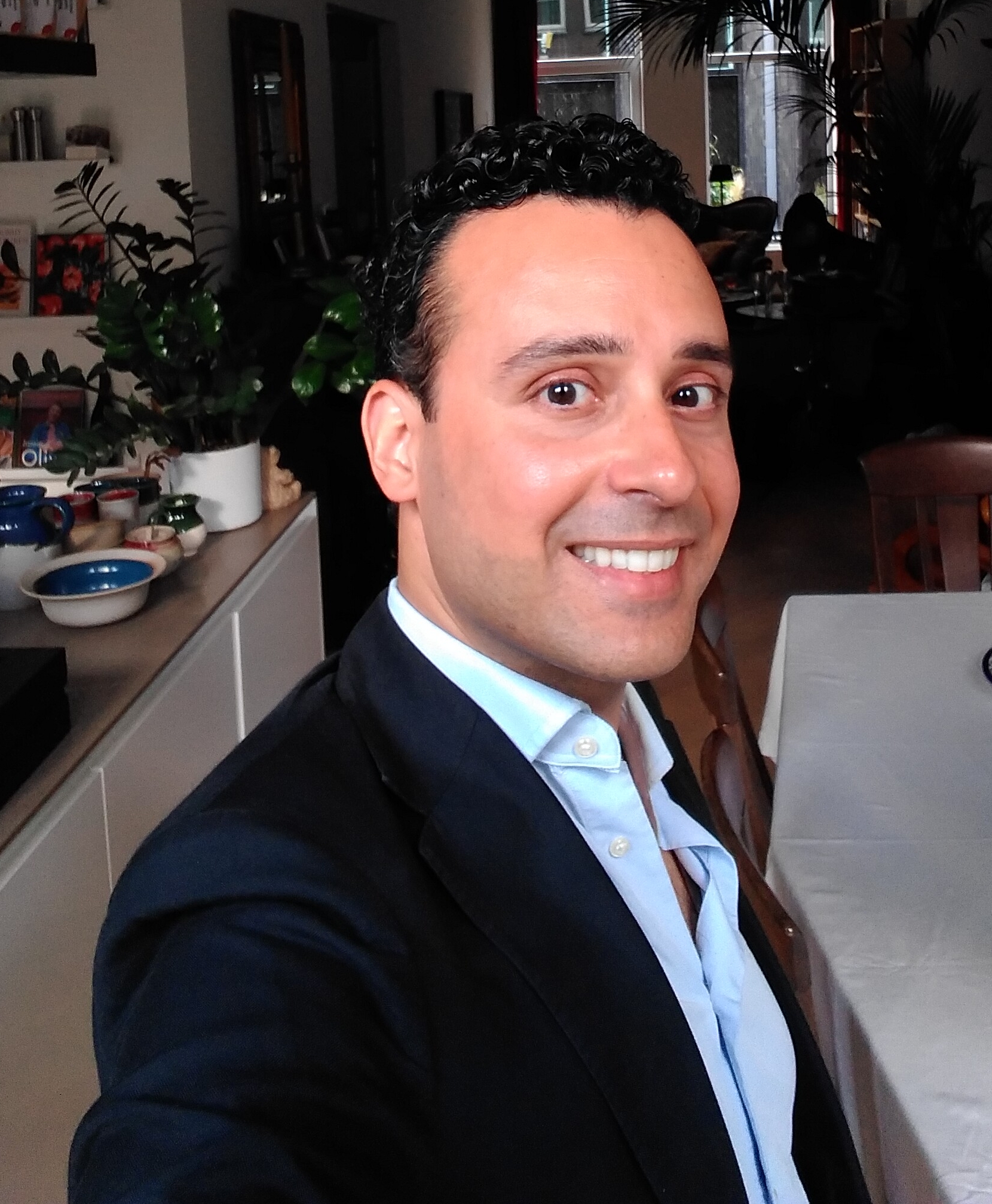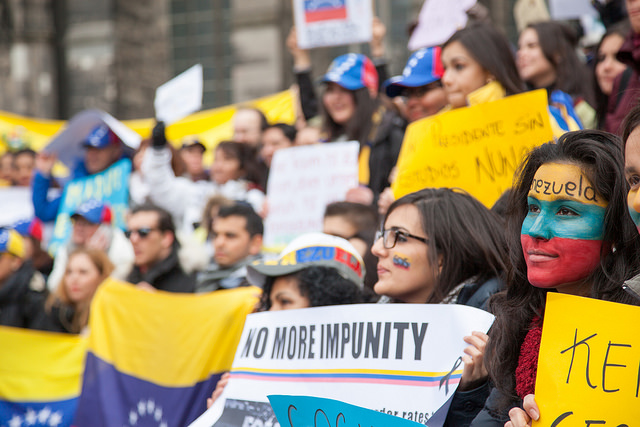Once reputed to possess the world’s largest proven oil reserves, Venezuela is currently dogged by, arguably, the deepest economic and humanitarian crisis of its recent history. As hyperinflation and acute shortages of basic commodities take their toll, many Venezuelans see no option but to emigrate. Since femininity has proven to be a significant part of this nation’s collective identity, the question arises how Venezuelan women — particularly the highly educated ones who relocated before Venezuela’s current impasse — in the diaspora fare. Who are they and how do they experience the daunting challenges their home country is presently exposed to? The following is an interview with the Venezuelan-born, Andrea Lira Trivino a Brand Manager, specialised in Wines and Spirits, based in the Kingdom of Bahrain.
In mediatic terms, many people will first and foremost think of Venezuela as the forerunner of feminine beauty. After all, Venezuelan beauty queens are renowned for having landed a record amount of titles in international pageantry. Says Andrea: “Beauty has always been a big thing for Venezuelans which also influences the way we are perceived around the world. A common joke in Venezuela is that anything could be missing in a household, except for a blow dryer and a straightener”. While some scholars argue that physical beauty and success are intertwined, current developments in Venezuela seem to have disclosed another designator in this entirety: power. “In Venezuela’s ongoing reality, beauty is exploited by people with power and authority based on privilege”, Andrea says. “From a professional point of view, I believe that beauty could lead to advancement. Nevertheless, there is still a lot of misogynistic behaviour in the world. Many people in power positions believe they are entitled to do indecent proposals to women in exchange for a job offer or a promotion”. Andrea explains that for all kind of divergent reasons some women might, sadly, accept these terms that in turn sustain this kind of behaviour. “The present crisis in Venezuela might not be the sole reason behind this, but it has indeed compounded and disclosed it even more”.
While it’s true that certain laws in Bahrain are severe and very strictly regulated, women are always highly respected.
Andrea’s own situation is entirely unrelated to the above. She left her home country in the early 2000’s to pursue post-secondary education in Europe. Having lived and studied in the Netherlands for several years, Andrea decided to pack her bags once again. This time, however, to perpetuate a career in one of the most competitive economies in the Arab world: Bahrain. In this process, her earlier experiences, when it comes to resettlement, happened to be an important tool to draw on. “The key is to keep an open mind, to understand that the country one is relocating to is not one’s own country. There will be ups and downs. Many new great experiences to come and many things to overcome too”. Her tip to any career-oriented woman planning to move to the Middle East is simple: be cultural savvy. “Immerse yourself in the culture and it’s do’s and don’ts. Understand that what might be considered ‘normal behaviour’ for example in the ‘Global West’, could be penalised in the Middle East”. She indicates that examples could include public display of affection, wearing shorts during the holy month of Ramadan, or alcohol consumption. “Be respectful to other cultures as a component of diversity, that’s my main advice”. Likewise, the position of women in Middle Eastern countries has long been a topic of discussion, particularly in the international media. Andrea’s day-to-day experiences in Bahrain are, by contrast, less lopsided. “While it’s true that certain laws in Bahrain are severe and very strictly regulated, women are always highly respected. There are, for instance, separate carriages for women in the bus, metro, waiting line, public offices, etc. Bahrain is, by and large, a very liberal country and expats are most welcome here”.
Many Venezuelans, all over the world, are eager to someday return to their country of provenance in order to contribute to a ‘new Venezuela’.
While notably neighbouring countries like Colombia, Brazil, Ecuador and Peru are presently faced with a high influx of Venezuelans, the Venezuelan migration phenomenon can be seen around the world. “I’m fortunate to have a European passport but for many of my Venezuelan friends, the situation is frightening because if an employment contract has expired and if for any reason it cannot be renewed, there is always the possibility and the fear to be sent home”. She lays down that, as is normally the case when it comes to forced migration flows, the vast majority of Venezuelan migrants are longing to integrate, work and make an effort, whereas others just cut the corners. “This causes plenty of distress not only for the local population but also for the remaining Venezuelans”. In this context, Andrea acknowledges the fact that the actual situation in Venezuela is, tellingly, a succession and composition of several complex and wide-ranging issues. Yet, the role of the Venezuelan diaspora in the South American country’s post-conflict phase has become an increasingly common conversation topic. Andrea denotes the fact that many Venezuelans, all over the world, are eager to someday return to their country of provenance in order to contribute to a ‘new Venezuela’. “Personally, I would definitely like to be directly involved in the reconstruction of Venezuela. If the opportunity arises, I would love to work in rebuilding the Venezuelan tourism industry, with a nod to environmental and social projects”.



